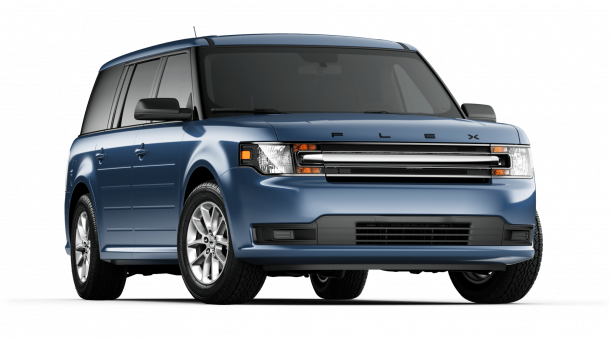No-deal Brexit threatens UK car production, industry warns PM Johnson – Reuters: A no-deal Brexit is an existential threat to the British car industry and would risk output, a British car industry body warned new Prime Minister Boris Johnson on Friday.
After Nissan, a profit plunge at Renault too – Reuters: French automaker Renault cuts revenue goal after a weaker first half, a day after alliance partner Nissan announced big job cuts and earnings woes. Francis …
SpaceX successfully flies Mars prototype rocket for the first time – CNBC: SpaceX took a noticeable step forward in its development of a massive, next-generation means of space transportation.
Real-world benefits of car safety technology – Reuters: .comAutomakers are accelerating the rollout of technology designed to avoid crashes and improve road safety. Here’s a look at selected crash avoidance features, …
Renault CEO Bollore on Nissan Alliance, Collapsed Fiat Talks, Sales – Bloomberg: Renault SA Chief Executive Officer Thierry Bollore discusses the French automaker’s sales, its alliance with Nissan Motor Co., the collapsed talks with Fiat …
ABB Stock Dropped Because Auto Makers Aren’t Buying Enough Robots – Barrons: The stock dropped anyway, by about 2% in overseas trading, because the global automotive industry is weak. That isn’t a surprise. Automotive is the …
New auto safety technology leaves insurers in the dark – Reuters: Automakers are accelerating the rollout of technology designed to avoid crashes, but insurance companies are …
Editorial: Even car companies aren’t going along with Trump’s rollback of mileage and emissions standards – Latimes: President Trump is hellbent on rolling back the nation’s fight against climate change. But he’s increasingly going it alone. Even some of the companies whose …
Tesla Loses a Founder, and a Piece of Its Soul – Bloomberg: J.B. Straubel, the outgoing technology chief, says he’s taking a break before getting back to “building things.”
Wildcat Discovery, InoBat to build electric car battery line in Slovakia – Reuters: Slovak group InoBat and U.S. energy tech firm Wildcat Discovery Technologies will build a 100 million euro ($111 million) automotive battery production line in …
Woes at Maruti Suzuki underscore troubles in India’s car industry – FT: India’s largest carmaker, Maruti Suzuki, has recorded a 27.3 per cent drop in net profits in the April to June quarter, compared to the same period last …
Ford will ax Ka+ minicar in Europe – Automotive News: PSA Group’s Opel-Vauxhall unit has said it will drop its Karl and Adam minicars. PSA has also hinted that the Peugeot 108 and Citroen C1 might be …
Renault cuts revenue goal as car industry misery spreads – Reuters: Renault warned revenue may decline this year, scrapping a previous goal, after first-half profit was hit by weakening car demand and an earnings collapse at alliance partner Nissan in the wake of the Carlos Ghosn scandal.
Maruti Suzuki India June-quarter profit dives, but tops estimates – Reuters: IndiaMaruti Suzuki India Ltd on Friday posted a 27.3% plunge in its first-quarter net profit amid an industry-wide slowdown in demand, but beat market expectations.
Ford, BMW, VW, Honda reach compromise with California on emissions – Automotive News: The automakers reached an agreement on fuel efficiency rules with California, which accounts for 12 percent of U.S. vehicle sales.
China’s CATL to start battery storage business in Japan with Next Energy – Reuters: China’s electric vehicle battery maker Contemporary Amperex Technology Co Ltd (CATL) said it will start offering products to homes and plants in …
Renault cuts revenue goal after weaker first half – Reuters: Renault warned that revenue may decline this year, scrapping a previous goal, after first-half profit was hit by weakening car demand and an earnings collapse at alliance partner Nissan in the wake of the Carlos Ghosn scandal.
French carmaker Renault cuts 2019 revenue outlook – Reuters: French carmaker Renault on Friday cut its 2019 revenue outlook, on the back of falling demand and tough conditions within the automotive industry.
China will not set blanket winter output cuts for heavy industry – Reuters: China’s central government will not set overall output restrictions on heavy industry for the coming winter, but will direct local governments to set limits based on manufacturers’ emissions, the environment ministry said on Friday.
Renault Lowers Sales Outlook as Europe Auto Downturn Takes Hold – Bloomberg: Renault SA lowered its outlook for full-year sales as the French carmaker grapples with a downturn in the European car market and dismal results from partner …
As electric vehicle production ramps up worldwide, a supply crunch for battery materials is looming – CNBC: As car manufacturers ramp up production of electric cars, metals used to make the vehicles’ batteries may face a supply crunch, according to a new report.
China’s Pony.ai gallops up behind Google in driverless cars – Nikkei: China’s Pony.ai gallops up behind Google in driverless cars … China also maintains tighter restrictions on self-driving cars than the U.S., and there … a one-hour drive from the city center, and plans to expand the fleet to 100 this year.
Japan, US eyeing ministerial trade talks in Washington, DC on August 1 – Reuters: Japanese Economy Minister Toshimitsu Motegi is … and instead wants to prod the United States into cutting tariffs on auto parts.
SoftBank Forms $108 Billion Vision Fund 2 With Apple, Microsoft – Bloomberg: … two or three years to take advantage of opportunities to invest in cutting-edge technologies such as artificial intelligence and autonomous driving.
Related

